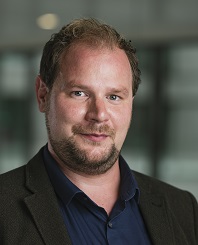Dr. Simon Willmetts awarded fellowship at the Netherlands Institute for Advanced Study
Dr. Simon Willmetts from Leiden University's Institute of Security and Global Affairs (ISGA) has been selected for a stay at the Netherlands Institute for Advanced Study in the Humanities and Social Sciences (NIAS-KNAW) in Amsterdam.
The NIAS Fellowship allows Dr. Willmetts to work on his project for a period of 10 months in the academic year 2020/21. He will become part of a carefully selected community of about sixty scholars, artists and writers. He was selected by an external review process on the basis of the quality and innovative value of the research proposal. The success rate of NIAS fellowships is about ten percent.
About his project
His project aims to explore the public life of the US Central Intelligence Agency (CIA). Though intelligence services are typically regarded as intrinsically secretive, largely absent from the public domain, the CIA has often found itself at the centre of major political and cultural debates. Politicians, conspiracy theorists, novelists, filmmakers, journalists and other public actors have positioned the CIA as a lightning-rod for wider public anxieties regarding secrecy and US foreign policy. These ideas about the CIA have had a profound impact. They have helped determine Presidential elections, brought about major official enquiries, undermined public trust in government, and mobilized both left and right-wing political movements. This project therefore seeks to understand the history of the CIA within its wider political and cultural context.

About NIAS-KNAW
NIAS - one of the institutes of the Royal Netherlands Academy of Arts and Sciences (KNAW) –provides a physical and intellectual space for advanced research in the humanities and social sciences that is driven by curiosity and cross-discipline collaboration. It offers temporary fellowships to international and Dutch scholars. NIAS is located in Amsterdam.

Dr. Simon Willmetts is Assistant Professor of Intelligence Studies at the Institute of Security and Global Affairs. He is a cultural historian interested in the history of secrecy, intelligence, surveillance and digital privacy. His research focusses upon the wider social and cultural impact of secret intelligence services and their activities. His first book, In Secrecy’s Shadow: The OSS and CIA in Hollywood Cinema (2016), examines the collapse of public trust in government in the aftermath of the Second World War through the lens of post-war spy cinema. More recently, he has become interested in the way in which contemporary dystopian fiction has interpreted and shaped debates about digital privacy.
